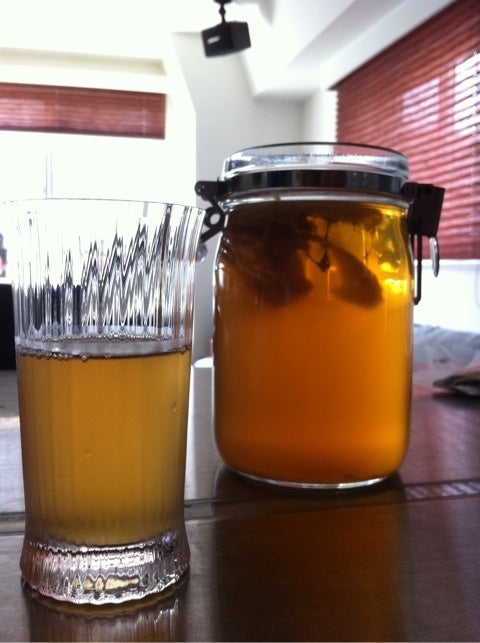I thought of looking for kombucha in Japanese. In English, kombucha refers to fermented tea. For an explanation of it, please look at http://www.foodrenegade.com/kombucha-health-benefits/. It explains kombucha and provides a link on how to make it but keep in mind the health benefits are anecdotal. At first, I thought kombucha (こんぶちゃ) was the same thing in Japanese as in English. However, it refers to seaweed tea. With the help of Wikipedia, I soon realised the correct term is (紅茶キノコ), which literally means "Black tea mushroom". It does make sense because the microbial culture that grows looks like a mushroom.
 |
| Above: A jar of kombucha with a glass of it. From the website featured below. |
The Japanese website I found from a search of 紅茶キノコ is here. It first talks about the benefits of fermented food and gives yoghurt as an example. However, it talks about how dairy is full of hormones and other things that are supposedly bad for your health (personally, unless you are lactose intolerant/allergic to dairy etc. I don't see any problems with dairy). It also goes on about how dairy can taste good but it isn't that good for your health. It talks about how kombucha offers similar benefits to yoghurt and gives instructions on how to make kombucha.
It was interesting to see how similar Japanese health food lovers are to Western health food lovers. Nevertheless, it was quite a provoking blog post and made me think about how lucky I am to live in Australia, where the use of hormones in livestock is more or less illegal. It was also interesting to see that it was published in 2011, before kombucha became popular among health food lovers in Australia.

No comments:
Post a Comment